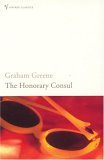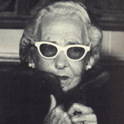The only questions of importance were those which a man asked himself.

Another book that I have just finished is The Honorary Consul by Graham Greene.
The novel is set in Argentina. Oddly enough, in the obscure, northern town of Corrientes on the border with Paraguay. It’s the tragicomic story of a bungled kidnapping by a group of would-be revolutionaries who intended to kidnap the American ambassador as he toured the nearby Jesuit ruins but instead ended up with a drunken British honorary consul who owns a small yerba farm. The group holds the honorary consul hostage, having to supply him with endless amounts of whisky while they wait for their demands to be met by Paraguayan dictator General Alfredo Stroessner who can’t be bothered while on a fishing vacation in Patagonia. Meanwhile, the British diplomatic corps in Buenos Aires is puzzled why no one in Argentina understands that the captive is only an “honorary” consul and not a real diplomat, the “honorable consul”.
The story is told mostly from the perspective of Eduardo Plarr, a doctor in the small town who is the son of an English-Argentine marriage. The doctor’s mother spends her days in Buenos Aires shopping at Harrod’s and eating sweets at the Richmond.
Graham Greene is one of the greatest novelists of the 20th century. The Honorary Consul is almost a textbook example of narrative pacing and plot. Greene converted to Catholicism in his twenties and, like most of his novels, a priest makes an appearance towards the end of The Honorary Consul. The story comes to a grinding halt for a few pages while the defrocked priest discusses morality and theology of the story with the characters. Regardless, it’s still an excellent read, especially for anyone with even a passing familiarity with South America. Written when Greene was 69, he called The Honorary Consul “perhaps the novel that I prefer to all the others.”
Graham Greene obviously had visited Argentina and dedicated The Honorary Consul to his friend Victoria Ocampo: “For Victoria Ocampo with love, and in memory of the many happy weeks I have passed at San Isidro and Mar del Plata.”
In the novel a pair of women’s sunglasses,worn by the honorary consul’s young wife, a former prostitute, figure prominently. Greene’s description of the sunglasses as well as the sunglasses pictured on the cover of the Vintage Classics edition remind me of the ubiquitous sunglasses that Victoria Ocampo wore in her later life, when Greene would have known her. I would like to think that Greene included the sunglasses in his novel as a small tribute to Ocampo.

The Vintage Classics edition, which is one of a series of Greene’s novels republished in 2004 on the centenary of his birth, includes an introductory essay by Nicholas Shakespeare who tells us that
It’s tempting to see in Charley Fortnum [the honorary consul] the projection of the frayed, seedy official that Greene might have become, sitting beneath a cracked portrait of the Queen while outside the Union Jack flutters upside down. Nobody wants “poor Charley” either. An old man and a drunk, he’s worthless in London, Buenos Aires and Corrientes. “All he has done for our relations with Argentina is to marry a local whore.”
Nicholas Shakespeare lived in Buenos Aires in the early 1970s when his father was actually the British Consul. Nicholas Shakespeare is the author of the splendid novel The Dancer Upstairs and a massive biography of Bruce Chatwin
(who wrote the 1977 travel classic In Patagonia
).
December 11th, 2005 at 11:55 pm
Hello! I found your website at random and I really like it. I´m from Belgrano neighbourhood, where are you staying and why are you here? Are you English? I´m really curious about this kind of stuff, and as I´m very enthusiastic about foreign cultures, I´d like you to answer these questions.
Actually, I love literature and I have read the things you wrote about Borges and Norah Lange. I don´t know if he loved her as Williamson describes in his biography buy it sure is a very interesting story. Have you read anything from her? I have just finished ´´Cuadernos de infancia´´ and I enjoyed it very much.
Well, wish you the best of luck!
Ana
December 31st, 2005 at 1:17 pm
i too am enjoying your blog.
i am a huge fan of borges but do not know much
about argentina (for me the best part of the Williamson biography was the historical part) and would like to learn, especially via these great writers. Keep up the good work.
October 12th, 2007 at 1:03 am
[…] And for those interested, here are my impressions of The Honorary Consul. […]
November 14th, 2009 at 7:11 am
Hi I was wondering if you have the address of the expat club that Plarr goes to in the novel. Im in Buenos Aires for a month and have read about the location before but cannot think where
November 16th, 2009 at 5:38 am
Hi Andrew,
Good question, but I don’t have the address.
November 17th, 2009 at 12:47 am
No probs, I will let you know if I find out
March 29th, 2011 at 12:00 pm
Hi,i red the book and liked very much ,the special thing in the story is that all of them are good,everyone is special in this story and i dont see who the bad guy is there,just nobody,
wonderful